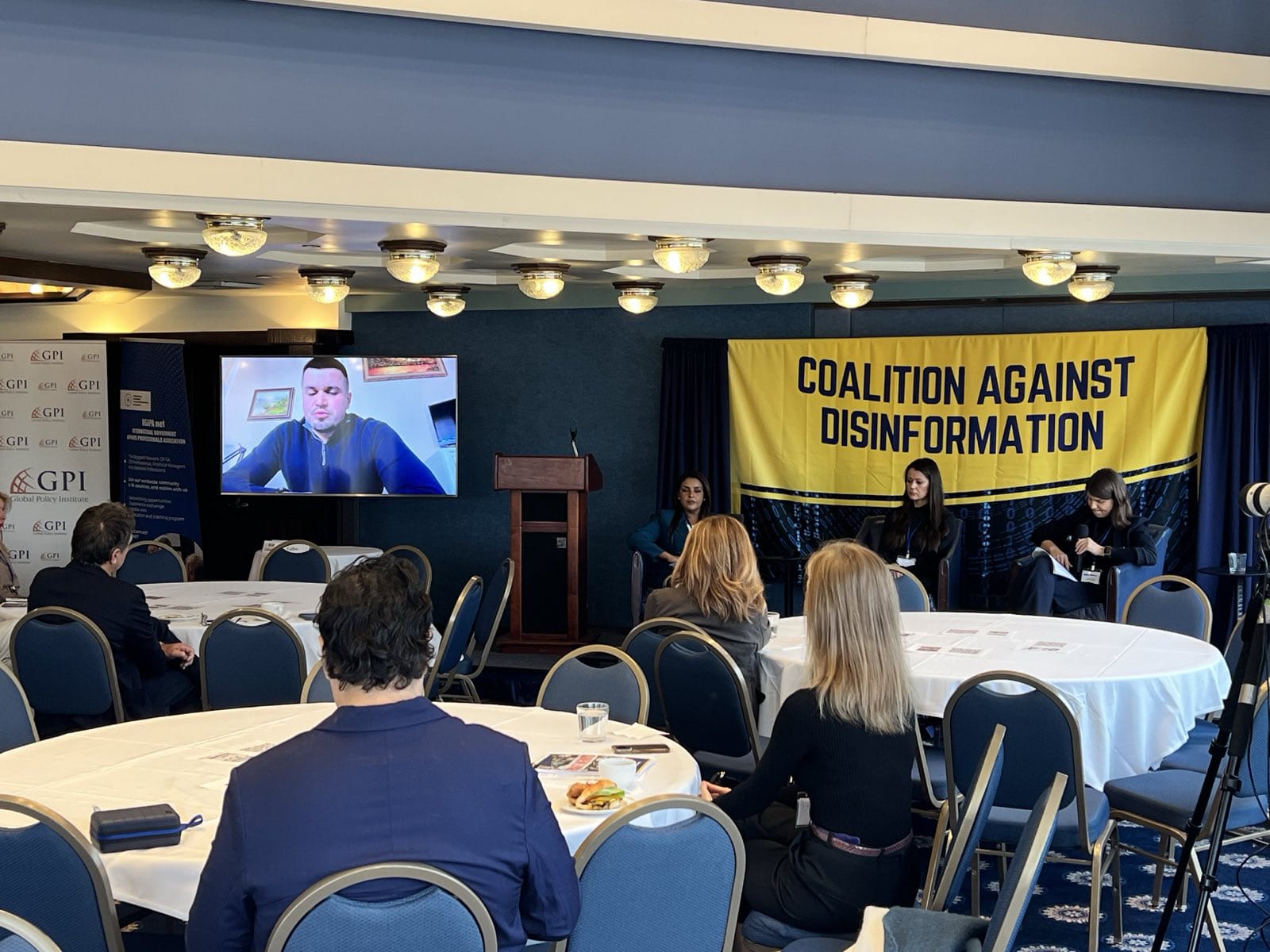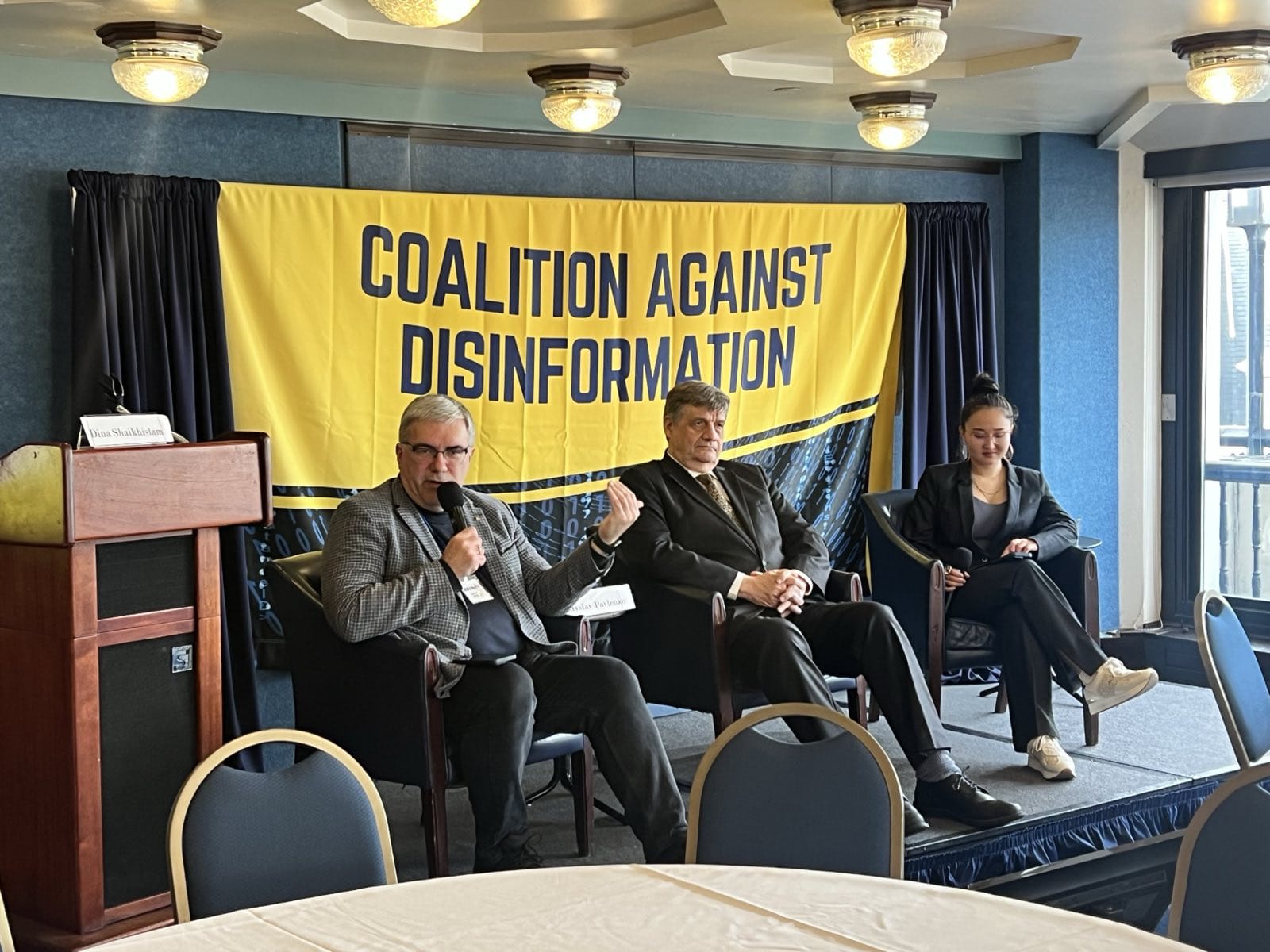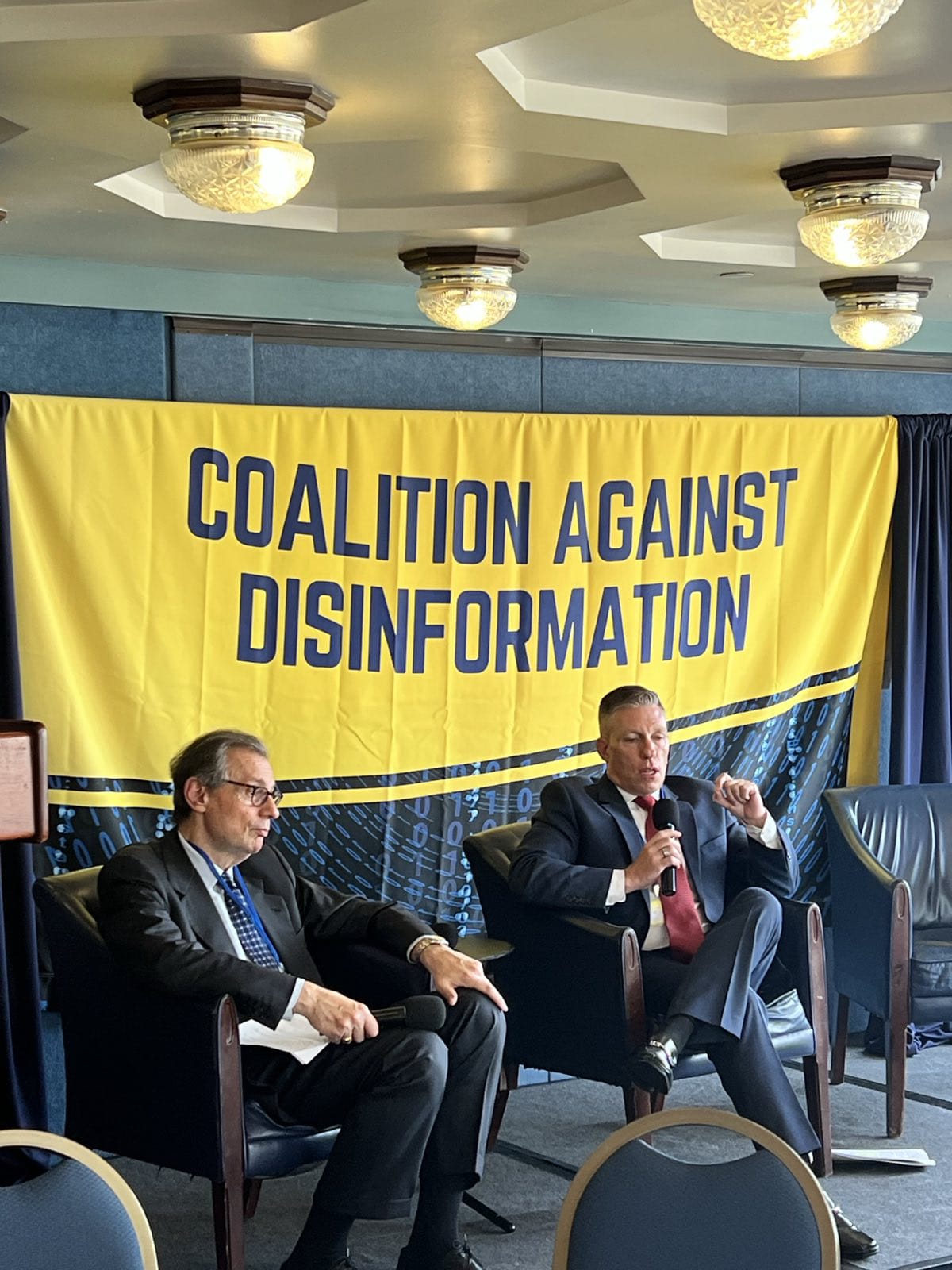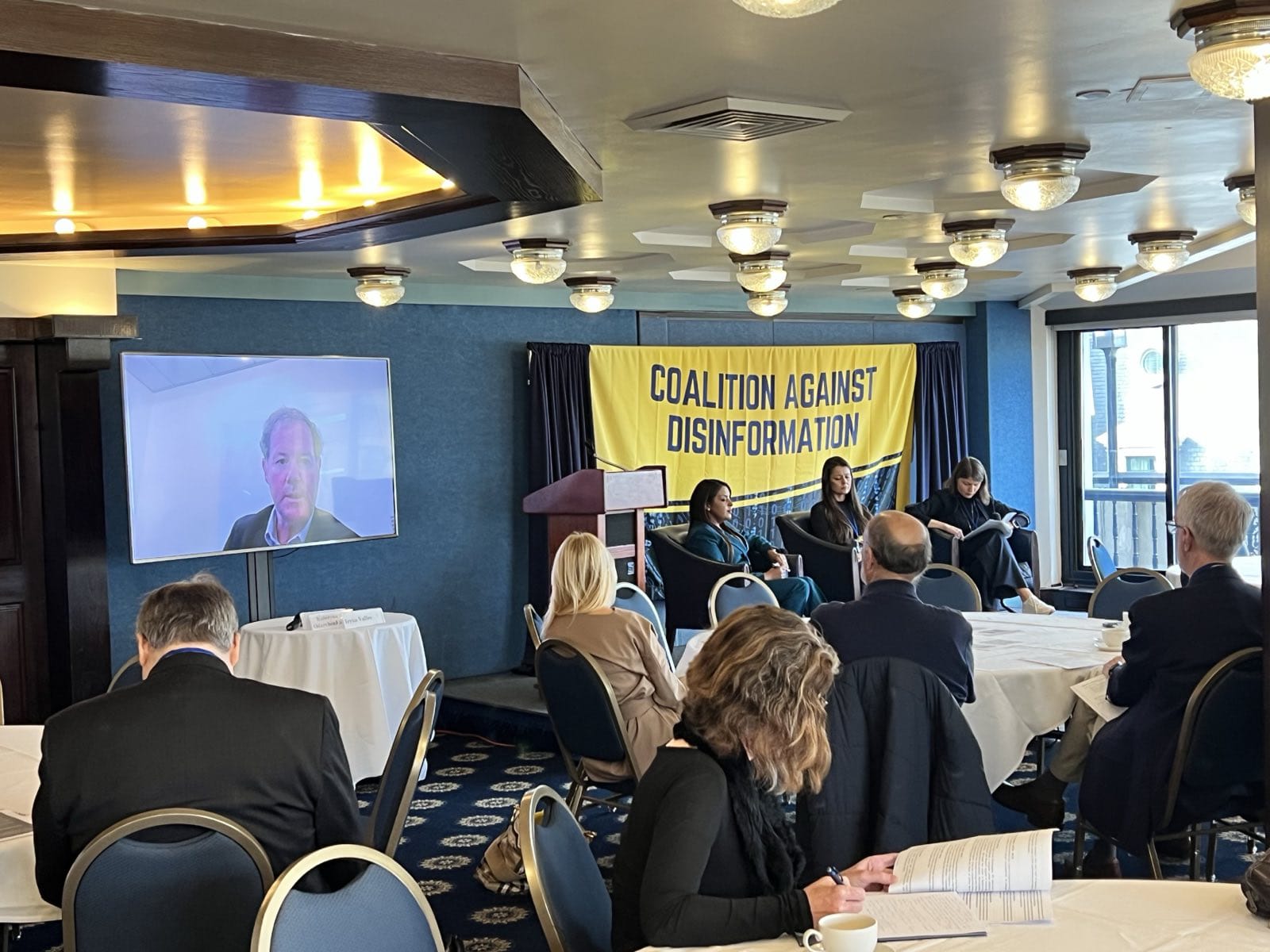LingvaLexa became a partner of the conference on disinformation
On October 29th, the conference, Russian Disinformation: Tactics, Influence, and Threats to National Security, brought together experts from media, politics, security, human rights, and various religious communities to address the evolving challenge of Russian disinformation. Held at the National Press Club in Washington, D.C., the event provided a platform for assessing the mechanisms and impact of Russian influence operations on national and international stability and for developing strategies to address these challenges. It was organized by the Coalition Against Disinformation, an alliance of non-governmental organizations (NGOs) focused on addressing the issue of disinformation across multiple platforms. This coalition unites experts, activists, and organizations with a shared goal: to support information integrity and democratic values amid concerns about manipulation.
One coalition member, LingvaLexa, was established in 2023 to address propaganda-related crimes, especially those associated with international crimes in armed conflicts. LingvaLexa collaborates with national law enforcement agencies to support their investigations and aid in establishing proceedings that meet international standards. The organization also prepares and submits documents for international sanctions. Its partners include the Auschwitz Institute, the Prosecutor’s Training Center of Ukraine, and the Clooney Foundation for Justice.
During the conference, experts examined Russian disinformation campaigns, including their influence on governance, electoral processes, and religious freedoms in both occupied and democratic territories. Participants discussed the role of disinformation in shaping perceptions of Russia's military activities and the wider implications for societal cohesion.
The opening panel, The Strategic Use of Disinformation in Propaganda, covered Russia's amplification of narratives through various channels, including social media. Experts highlighted challenges in detecting disinformation in real time and the importance of fact-checking and media accountability in addressing the flow of disinformation.
Key insights were provided by international experts. Anna Vyshnyakova, an international criminal law expert and head of the NGO LingvaLexa, noted, “Russia’s strategy is to disguise disinformation under the cover of entertainment and journalism—even embedding it in video games—to influence perceptions about Ukraine.” She emphasized the importance of awareness of these tactics within the international community.
Another session, Russian Disinformation and the Erosion of Religious Freedoms in Occupied Territories and Democratic Nations, discussed the manipulation of religious freedoms and its effects on societal cohesion, with a particular focus on regions such as Crimea and Donbas. The conference also unveiled a report that analyzes the tactics and methods used in disinformation campaigns impacting religious rights and electoral processes. The report is available here: https://www.slideshare.net/slideshow/report-russian-disinformation-tactics-impact-and-threats-to-national-security-2-pdf/272830764




